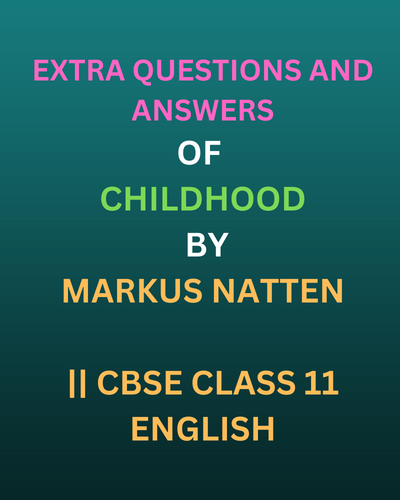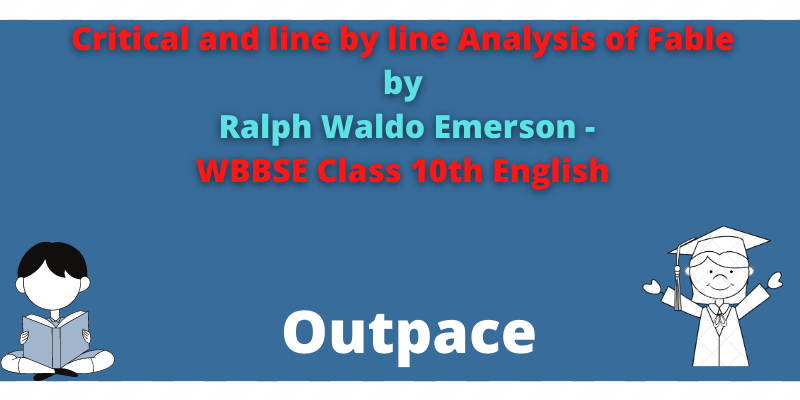EXTRA QUESTIONS AND ANSWERS OF CHILDHOOD BY MARKUS NATTEN.The poem “Childhood” by Markus Natten is a nostalgic and melancholic reflection on the loss of innocence and the progression of time. Through poignant questions and imagery, the poet masterfully captures the bittersweet emotions that come with growing up and leaving childhood behind. This poem is not only a testament to the fleeting nature of childhood, but also an exploration of the complex relationships between children and adults, and the shifting dynamics of our own perceptions and experiences as we mature. In this blog post, we will delve deeper into the themes and motifs of this poignant work, and reflect on the timeless message it holds for all of us who have grown up and moved on from our childhood days.

1.What themes are explored in “Childhood”?
The poem “Childhood” explores the themes of growing up, loss of innocence, and the search for meaning in life. The speaker reflects on their childhood and the moments that may have marked its end, such as realizing the limitations of religion, the imperfections of adults, and the independence of the mind. The poem also touches on the idea of a forgotten childhood, hidden in the face of an infant, that serves as a reminder of the fleeting nature of time and innocence.
2.How does the speaker’s attitude towards childhood change throughout the poem?
At the beginning of the poem, the speaker has a nostalgic and longing attitude towards childhood. However, as the poem progresses, the speaker becomes more introspective and reflective about the moments that may have marked the end of their childhood, such as realizing the limitations of religion, the imperfections of adults, and the independence of the mind. Through these reflections, the speaker seems to gain a deeper understanding of the complexities of growing up and the loss of innocence, leading to a more complex and nuanced attitude towards childhood by the end of the poem.
3.How does the use of language contribute to the themes and tone of the poem?
The use of language in “Childhood” contributes greatly to the themes and tone of the poem. The simple, straightforward language and phrasing of the questions reflects the speaker’s innocence and longing for their childhood. The repetitive use of the questions, “When did my childhood go?” and “Where did my childhood go?” underscores the speaker’s longing and creates a melancholic atmosphere. Meanwhile, the use of concrete, sensory images such as “some forgotten place” and “an infant’s face” helps to anchor the abstract concepts of childhood and loss in tangible, relatable terms, further emphasizing the themes of the poem.
You are reading -EXTRA QUESTIONS AND ANSWERS OF CHILDHOOD BY MARKUS NATTEN
4.How does the poem “Childhood” reflect the broader themes of T. S. Eliot’s work?
The poem “Childhood” reflects the broader themes of T. S. Eliot’s work by exploring the human experience of loss, memory, and the search for meaning in life. Eliot’s work often reflects on the fragmented nature of modern society and the alienation of the individual, and “Childhood” similarly touches on these themes by exploring the speaker’s loss of innocence and sense of displacement as they grow up. Additionally, the poem’s focus on the fleeting nature of time and the idea of a forgotten childhood align with Eliot’s larger concerns about the nature of memory and the human experience of loss and change.
5.What is the poem’s impact on the reader, and why is it considered a powerful piece of literature?
The poem “Childhood” has a profound impact on the reader by exploring universal themes of loss, memory, and the search for meaning in life. The speaker’s nostalgic and longing attitude towards childhood, along with the use of simple, straightforward language, creates a melancholic atmosphere that is both relatable and emotionally resonant for readers. Additionally, the poem’s exploration of the moments that may have marked the end of the speaker’s childhood, such as realizing the limitations of religion, the imperfections of adults, and the independence of the mind, helps to shed light on the complexities and difficulties of growing up and losing innocence, making it a powerful piece of literature that speaks to the human experience.


